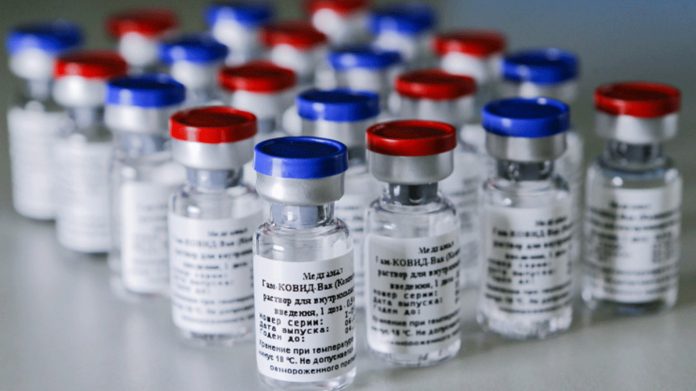
By Orville Williams
The government has confirmed that a need for some medical professionals to be trained in administering the Sputnik V Covid-19 vaccine is the reason the rollout has yet to get underway.
A batch of 1,000 doses was received by officials earlier in April as a donation from the Russian Direct Investment Fund (RDIF) and plans were to get them in circulation as soon as possible.
The country’s Pharmacy Council had initially approved the importation and use of the vaccine within the local population, but there were longstanding concerns from the advisory group tasked with assessing the vaccines and ‘signing off’ on them.
The government maintained that it would wait for the group to complete its assessment before the official green light was given to start using the doses, and that it did, until the group gave the ‘go-ahead’ last month.
Despite that latter approval, however, residents are still not yet able to access the Sputnik V doses.
Health officials previously said that some logistical issues would need to be addressed before that happens and Information Minister Melford Nicholas told media on Thursday that the rollout is likely to begin in earnest, once the medical professionals are sufficiently trained in administering the vaccine.
“On the last engagement that we had with the Acting Chief Medical Officer, because the application of the Sputnik V is a little different to the other vaccines that have already been in use, they indicated that they would require some specific training for the medical personnel.
“I imagine that in the coming days, the medical and public health officials will give a further indication to that, because there had been significant interest [shown] by a number of persons who were awaiting the use of the Sputnik V as their preferred choice.”
The Sputnik V remains one of the most-used Covid-19 vaccines across the world, even though it has yet to receive emergency use approval from the World Health Organization (WHO).
Officials with the RDIF believe that approval will come during September-October of this year.
Meanwhile, Antigua and Barbuda could be in line to receive even more doses of the Sputnik V, perhaps depending on how the uptake goes once it is finally rolled out.
In June, Russian Foreign Minister, Sergey Lavrov, spoke on Russia’s intention to “continue cooperation” after the first batch of doses was delivered.
At the time, he also hailed Antigua and Barbuda’s public vaccination programme, saying the country was “among the leaders in terms of the percentage of the population getting inoculated.”
